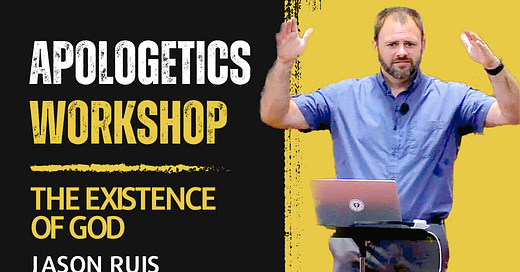
Glorify God in Everything
[Read 1 Peter 4:1-11]
A couple days ago, as I was sitting on a bench at the mall, waiting for “the girls” to finish up their shopping, I saw something really impressive. This lady came walking by me with a dog on a leash—nothing unusual about that. But then, after she walked past me she said, “Right,” and the dog started veering off to the right. Then she said, “Left,” and the dog immediately began veering off to the left. Then she said, “Sit,” and the dog immediately sat. Then she said, “Stand,” and the dog immediately stood. Then she said, “Back,” and the dog immediately began walking backwards. Then she said, “Forward,” and the dog began walking forward. Then she said, “Reverse,” and the dog turned around and began walking the opposite direction. It was all verbal controls. Every time she said something, the dog responded immediately, without thinking. I was impressed.
As I watched this, my mind began to wander to my sermon and the passage I’ve been studying throughout the week. This passage talks about things that we do automatically, without thinking. We have reactions and impulses to do certain things. We don’t have to think about it. We just do them, like a trained dog. Yet, we don’t really think that we’ve been trained to do these things. We think we’re much too “sophisticated” to be “trained.”
But think about it for a moment, even in the midst of this pandemic, if someone sticks their hand out to you, what do you do without thinking? You stick your hand out and shake it. Guess what, in the midst of this pandemic, we’ve been working on training ourselves to react differently. We’ve been trained to respond with fist bump or an elbow bump or whatever. It doesn’t matter, it is still a form of training.
That got me thinking about the other things we “naturally” do without thinking. The reality is that the culture around us is training us to live and act certain ways. We need to be aware of it. The culture wants to be able to tell us to “Sit,” and for us to sit without thinking, or to “Reverse,” and for us to reverse without thinking, or to “Be Quiet,” and for us to be quiet without thinking.
Peter mentions some other things the culture is training us to do. He says, “For you have spent enough time in the past doing what pagans choose to do—living in debauchery, lust, drunkenness, orgies, carousing and detestable idolatry.” (1 Peter 4:3, NIV). He’s telling these believers that they had spent enough time thoughtlessly doing what the rest of the culture was doing. They thought nothing of partying and getting smashed, or fooling around with a bunch of people, or worshiping the numerous idols throughout the city. They thought nothing of it. They had been trained by their culture to live this way. Everyone was doing it. So, they thought nothing of it.
Has much changed today? When we look at the culture around us, are very many people thinking twice about getting “stupid drunk”? How about “hooking up” up with someone for a night—or maybe a couple? How many people are thoughtlessly going through life—rejecting God or worshiping the various idols of our culture?
The problem comes when we’ve grown up in this culture—even as Christians. As we grow up in the culture, it is shaping us—training us—to live and act a certain way. Many of us have been trained by our culture to follow these same patterns without thinking. We end up living just like the rest of the world without even thinking about it. When the world tells us to “Sit,” we sit because everyone else is sitting. When the world says, “Right” or “Left,” we find ourselves veering right or left without even thinking about it. We’ve been trained—discipled—by them.
Yet, Peter reminds us that through the gospel, we’ve been removed from slavery to the world and been given a new master—Jesus Christ. Now, “As a result, [we] do not live the rest of [our] earthly lives for evil human desires, but rather for the will of God.” (1 Peter 4:2, NIV). We no longer thoughtlessly follow our desires—or the desires of our culture—but we follow God’s will. We have to think about what we’re doing. We can’t assume we know what to do. We can’t trust our “natural instincts” because our natural instincts have been shaped by the culture. We must put in thought about how to live in this world according to God’s will and not according to human desires.
When we do that, things start to happen. Peter says, “They are surprised that you do not join them in their reckless, wild living, and they heap abuse on you.” (1 Peter 4:4, NIV). Actually, the word that is translated “reckless,” has a meaning of thoughtlessness. So, when we begin to think about how we are living in the world, people are surprised and they begin to mock you. They expect you to thoughtlessly go through life, obeying the commands of the culture like everyone else. Yet, now that you’ve given you trust and allegiance to Jesus Christ, you are thinking about how you’re living. Now, when the culture says, “Sit,” you don’t thoughtlessly sit down like everyone else. You actually look to Jesus and ask, “Should I sit?” When the culture tells you to “Reverse,” you don’t just turn on a dime. You, stop, think, and ask Jesus, “Should I reverse?”
And because you’re doing that, people are surprised about it and they mock you for it. They respond this way because they assume that you are trained like the rest of them. You should listen when they tell you to do something. When you don’t listen, they say things like, “What? Do you think you’re better than us? Do you think you’re smarter than us?” No. We don’t think we’re better or smarter. We’re just looking to our true master for guidance. That’s all. Because we are now trusting and following Jesus, we refuse to drift along with the rest of our culture, thoughtlessly doing what they are doing. Rather, we have committed ourselves to following Him and going wherever he has called us to go—even if that means we need to swim against the current of our culture.
This is why Peter says, “The end of all things is near. Therefore be alert and of sober mind so that you may pray.” (1 Peter 4:7, NIV). When Peter tells us to “be alert” and to be “of sober mind,” he’s telling us that we need to think about what we’re doing and how we’re talking. We need to be on the lookout for traps and snares in our culture. We need to think clearly about the issues going on in our world. We cannot simply accept what our culture is saying. We need to think clearly and be alert.
What all of this really means is that we need to make sure we are being trained by our God rather than by our culture. A more “Christian” way of saying this is that we need to be discipled by our God rather than our culture. We need to recognize that we are always being discipled by someone (or something). Who do you think is better at discipling you, our culture or our God? Who do you think cares more about the outcome of your life, our culture or our God?
So, we need to be alert and sober minded. Especially in the times we are in. There are opinions flying all over the place right now. Everyone is trying to tell us something. People are shouting all over the place. As Christians, we CANNOT simply, thoughtlessly go along with what everyone is saying. I don’t care if you heard it on CNN or Fox News or Facebook. We cannot thoughtlessly embrace these things just because we like what they are saying. We cannot thoughtlessly reject these things either, just because we do not like them. We need to be alert and sober minded. We need to be weighing everything we hear against God’s Word—because He is our master. He is the one we want discipling us.
Peter goes on to tell us some things that we can focus on doing thoughtfully and intentionally as we live our lives—as we live alert and sober minded. The first things he says is, “Above all, love each other deeply, because love covers over a multitude of sins.” (1 Peter 4:8, NIV). Yet, don’t forget the context that this comes to us. We are not to thoughtlessly love each other deeply—assuming we know how to love each other deeply. We need to be alert and sober minded as we love each other deeply. We need to make sure we are loving each other deeply in the way God has told us to love each other.
Peter says we need to do this “because love covers over a multitude of sins.” (1 Peter 4:8, NIV). Now, this doesn’t mean that loving actually covers or atones for sins. Peter is quoting a Proverb. I think we instinctively understand what Peter is saying. When we love each other deeply, we find it easier to overlook faults. When we love each other deeply, we don’t bite and devour one another over small, inconsequential things. We overlook them and stick together—which is extremely important in the midst of divisive times. In the midst of a very divided country, let us make sure that we are loving one another deeply and pulling together into a deep unity as the Body of Christ.
Peter goes on to say that we must thoughtfully and intentionally, “Offer hospitality to one another without grumbling.” (1 Peter 4:9, NIV). There are two sides to Peter’s warning about grumbling. On the one hand, we can be tempted to show hospitality while gritting our teeth and putting on a martyr’s complex: “Woe is me. I guess I’ll help this person out. I don’t want to, but I will. Look how righteous I am. Nobody else is helping them. So, I guess I will.”
Which leads us into the other aspect of grumbling that often comes when showing hospitality. I’ve noticed this in my own heart and in the church over the years. As we show hospitality to others, we can find ourselves grumbling about everyone else: “Why am I the only one showing hospitality? Why isn’t anyone else helping this person out? I guess none of them are as spiritual and righteous as I am.” Peter says, “Knock it off. Get over yourself. Joyfully show them hospitality. Your job isn’t to be worrying about what everyone else is doing. You just be hospitable to those God places in your path and take joy in it.”
Peter then goes on to talk about thoughtfully and intentionally using the gifts God has given us. He says, “Each of you should use whatever gift you have received to serve others, as faithful stewards of God’s grace in its various forms. If anyone speaks, they should do so as one who speaks the very words of God. If anyone serves, they should do so with the strength God provides…” (1 Peter 4:10–11, NIV). God has given each one of us certain gifts that we are to use to serve others. We are to thoughtfully and intentionally use those gifts as good stewards. If God has given you a gift, we better make sure we are thoughtfully and intentionally using that gift, otherwise we are not taking good care of what He has given us.
So, Peter gives a couple examples. If God has given you the gift of speaking, then you better speak as though you are speaking the very words of God. If God has given you the gift of serving, then you better serve in the strength that God supplies. Peter could have kept going: If God has given you the gift of teaching, teach like you’re teaching for the Lord. If God has given you the gift of compassion, show compassion as if you were the Lord. We are to remember that our Savior has given us these gifts and we should be using these gifts as thoughtfully and intentionally and passionately as possible.
Yet, we also need to remember that God has given different people different gifts. There’s a temptation—when we’re really passionate about something—to get frustrated and angry at those who are not as passionate as we are. If we have the gift of compassion and mercy, we can easily begin to think that nobody else has these gifts OR become frustrated with others because they are not doing the same things you are doing. The temptation is there for every gift God gives us. We can easily fall into the trap of thinking our gift is the most important and everyone else needs to have our gift in order to be a real Christian. Yet, God has not made the Body this way. We each have different gifts that we are called to steward and passionately pursue. That means we should expect everyone to be doing different things passionately. It means we should not expect everyone to do things the same way or everyone to be doing the same things. It means that when a crisis occurs, some will be cooking meals, some will be writing cards, some will be listening ears, some will be fervently praying, and some will be speaking the Word of God. That’s actually how things will be happening on a day-to-day basis and it is beautiful and good and brings glory to God. This is what it looks like to no longer live according to human desires, but according to the will of God. This is what it looks like to be discipled by God rather than our culture.
Yet, God has some additional tools that he uses to disciple us—tools we don’t always like. That’s what Peter is talking about at the beginning of this passage. He says, “Therefore, since Christ suffered in his body, arm yourselves also with the same attitude, because whoever suffers in the body is done with sin. As a result, they do not live the rest of their earthly lives for evil human desires, but rather for the will of God.” (1 Peter 4:1–2, NIV). One repeated refrain throughout Scripture is that often we have to learn things the hard way. It’s through suffering that we are discipled away form human desires and toward the will of God.
That’s the general principle Peter is laying out here. He is reminding us that suffering is a tool of discipleship—it functions like a refining fire in our lives. Listen to James say the same thing in a different way: “Consider it pure joy, my brothers and sisters, whenever you face trials of many kinds, because you know that the testing of your faith produces perseverance. Let perseverance finish its work so that you may be mature and complete, not lacking anything.” (James 1:2–4, NIV). Why should we rejoice in our trials? Because these trials work on us—purify and refine us—so that we can be mature and complete in the faith. These trials are tools God uses to disciple us to follow his will more fully. These trials also disciple us in the things we’ve been speaking about. Trials disciple us in loving one another deeply. Trials disciple us in showing hospitality without grumbling. Trials disciple us to use the gifts of God rightly.
Ultimately, this passage has been about one important thing—glorifying God with our lives. At the very end Peter says, “…so that in all things God may be glorified through Jesus Christ. To him be the glory and the power for ever and ever. Amen.” (1 Peter 4:11, NIV). There’s that phrase that we keep talking about—the idea that our purpose in life is to glorify God.
Peter reminds us that he’s been talking about this the entire time. We bring glory to God when we choose to be discipled by him and not the world. We bring glory to God when we love his will over human desires. We bring glory to God when we live thoughtfully and intentionally in the world, seeking to follow Him. We bring glory to God when we love one another deeply. We bring glory to God when we show hospitality without grumbling. We bring glory to God when we thoughtfully, intentionally, and passionately use the gifts He has given us. We bring glory to God when we recognize that our suffering is a tool of discipleship, helping us to further glorify Him.









